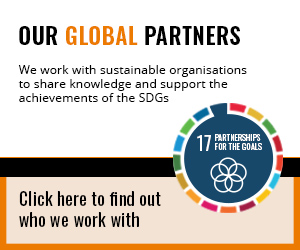Susan Taylor Martin, Chief Executive, BSI
Recent research has shown that fewer than one in four of the world’s largest companies are on track to meet basic climate change targets and that Europe will miss its 2030 climate goal by 21 years. Although there are an increasing number of net-zero corporate commitments and government targets, there is a lack of real direction for business leaders as to how these targets can be met. Governments and industry need clear, practical guidance to meet their net-zero ambitions. Standards can play a key role in providing that guidance and thereby accelerating our progress.
The international standards system, which uses national delegations to develop consensus best practice, is a trusted, global framework that can deliver real, practical change through the promotion of common approaches to solving complex problems. For example, the international standard BS EN ISO/IEC 27001:2017 on information technology was based on British Standard BS 7799 and has provided easy-to-use insight into managing cybersecurity risks for more than 15 years. And consensus doesn’t mean slow. International standards can be produced very rapidly; PD ISO/PAS 45005:2020 for safe working during Covid was developed during lockdown and published last year. There are a large number of international standards already available – and new standards are published all the time – that could support organisations to develop more sustainable processes, products and services. Standards are poised to redefine best practice around, among other things, energy-smart appliances and innovation in battery production – essential technologies that will accelerate our journey to a net-zero economy.
This year, BSI has worked with the other national members of the International Organization for Standardization (ISO) to agree that the content of all our standards should be aligned with the latest climate science. Together with the President and Secretary-General of ISO, we signed the London Declaration in September, committing BSI and ISO to embed key climate considerations into every new standard that is created. We will also retrospectively add these requirements to all existing standards as they are revised. This is change on an unparalleled scale because it is both systemic and highly practical at an organisational level.
BSI and ISO will be present at COP26 in November, presenting our work on sustainable finance, industrial biotechnology and voluntary carbon markets. We have developed a Climate Action Kit with ISO to illustrate through case studies how governments, industry and other stakeholders, working together on the role of standards and regulation to stimulate industry transformation, can accelerate market take-up and scale change.
There has never been a more important time for consensus best practice standards that can respond to the global challenges of today, building trust and resilience and accelerating our transition to a more sustainable world. Sustainability and the digital economy are the principal drivers of our work to support government, industry and society in the decade ahead and we would welcome engagement with business leaders, experts and consumer organisations alike who want to get involved in shaping the standards we need for a future net-zero economy.
For more information about how BSI can help your organization to be future-ready please visit www.bsigroup.com





